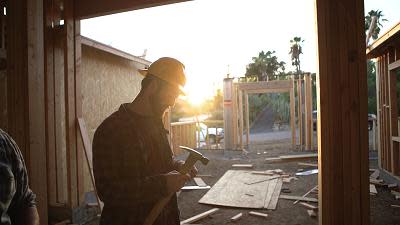A couple that banked $50,000 last year shares their No. 1 money-saving tip

Financial blogger Matt and his fiancee managed to save more than $50,000 in 2016.
But the Chicago-based couple hasn't always been money savvy. Up until 2014, when they decided to get serious about their finances, they were buried in student loans and living paycheck to paycheck.
They upped their savings through various strategies , but if they were to pinpoint the most effective one, it would be to live big in a tiny home.
"Our choice of living has been, from a numbers perspective, the biggest factor when it comes to doubling our savings rate in 2016 and helping us build wealth rapidly," Matt writes on his blog, "Distilled Dollar."
"We live in a neighborhood where most of our neighbors are paying a higher percentage of their income towards rent," he writes in a separate post. "Of course, we could pay the same percentage and upgrade to a nice two-bed/two-bath, but we're more than happy with where we live today."
He and his fiancee pay less than 15% of their income for their 700-square-foot condo in Chicago. They could easily afford to spend another $1,000 a month on housing, meaning they're saving at least $12,000 a year.
Plus, they chose a place within walking distance to work and so save another $9,000 a year by going car-free. Those savings go straight to their retirement accounts.
"Instead of paying for a second bedroom that I would use 10 percent of the time as an office, or a second bathroom that would be utilized only in the mornings when we find ourselves getting ready at the same time, we're instead making massive strides towards securing our financial freedom," Matt writes.
And they're not just saving money on rent and commuting costs, Matt tells CNBC: "We also need less stuff to fill our place, and we feel less social pressure to buy more things to match our living situation."
Of course, they'd certainly "enjoy the perks living in a place that we should be able to afford," Matt writes. "However, we're happier going against the grain to pursue our financial independence at an early age."

